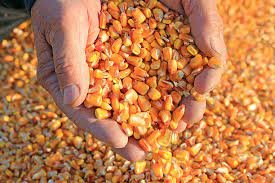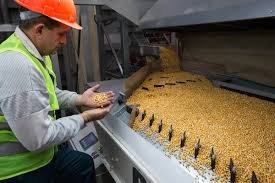Corn Processing Technician

Corn, often referred to as maize in many parts of the world, holds a significant place in agriculture, food production, and various industrial processes. From its humble origins as a staple food for indigenous peoples in the Americas to its current status as one of the world’s most cultivated crops, corn has undergone extensive processing to produce a diverse range of products. At the heart of this intricate process lies the expertise of corn processing technicians, whose skills and knowledge are crucial for transforming raw corn into a multitude of valuable products.
Understanding Corn Processing
Corn processing encompasses a wide array of techniques aimed at converting raw corn kernels into various derivatives used in food, beverage, and industrial applications. The process involves multiple steps, including cleaning, milling, steeping, fermentation, separation, and drying. Each of these stages requires precise control and specialized equipment to ensure optimal results.
- Cleaning: The initial step involves removing impurities such as dust, debris, and foreign material from the corn kernels. This ensures the quality and purity of the final products while preventing contamination during subsequent processing stages.
- Milling: Corn kernels are ground into various particle sizes to obtain different fractions such as cornmeal, corn flour, and grits. The milling process may involve coarse or fine grinding, depending on the desired end product.
- Steeping: In this stage, milled corn undergoes soaking in water to soften the kernels and facilitate the separation of components such as starch, protein, and fiber. Steeping also helps initiate the fermentation process, crucial for certain downstream applications.
- Fermentation: Fermentation is a key step in producing ethanol, a renewable biofuel derived from corn. During fermentation, microorganisms break down sugars present in the corn mash to produce ethanol and carbon dioxide, which are then separated and purified.
- Separation: Separation techniques are employed to isolate specific components of the corn, such as starch, protein, fiber, and oil. Centrifugation, filtration, and centrifugal separation are commonly used methods to achieve efficient separation of these constituents.
- Drying: The final step involves drying the processed corn fractions to remove excess moisture and ensure stability during storage and transportation. Proper drying prevents microbial growth and preserves the quality of the end products.
The Role of a Corn Processing Technician
Corn processing technicians play a vital role in ensuring the efficient and safe operation of corn processing facilities. Their responsibilities encompass various aspects of production, quality control, maintenance, and troubleshooting to maintain optimal performance throughout the processing chain. Let’s delve into some key responsibilities and skills required for this role:
- Operational Expertise: Corn processing technicians are proficient in operating a diverse range of equipment and machinery used in corn processing plants. They understand the intricacies of milling, steeping, fermentation, and drying processes, and are capable of adjusting parameters to achieve desired outcomes.
- Quality Control: Maintaining high-quality standards is paramount in corn processing. Technicians regularly monitor raw materials, intermediate products, and finished goods to ensure compliance with specifications and regulatory requirements. They conduct quality tests, analyze data, and make adjustments as necessary to optimize product quality and consistency.
- Safety Compliance: Corn processing facilities pose inherent risks associated with machinery, chemicals, and high temperatures. Technicians adhere to strict safety protocols to prevent accidents and mitigate potential hazards. They receive comprehensive training on safety procedures, emergency response, and the proper handling of hazardous materials.
- Maintenance and Troubleshooting: To prevent downtime and ensure uninterrupted production, technicians perform routine maintenance tasks and troubleshoot equipment malfunctions. They are proficient in diagnosing mechanical issues, conducting repairs, and collaborating with maintenance teams to address complex problems promptly.
- Process Optimization: Continuous improvement is a core principle in corn processing. Technicians actively seek opportunities to enhance efficiency, reduce waste, and optimize resource utilization throughout the production process. They conduct trials, experiments, and process evaluations to identify areas for improvement and implement innovative solutions.
- Team Collaboration: Corn processing technicians work closely with colleagues across various departments, including production, quality assurance, maintenance, and logistics. Effective communication, teamwork, and collaboration are essential for achieving common goals and overcoming challenges in a dynamic manufacturing environment.
Education and Training Requirements
Becoming a corn processing technician typically requires a combination of formal education, hands-on training, and relevant experience. While specific educational requirements may vary depending on the employer and the complexity of the role, the following qualifications are commonly sought after:
- High School Diploma or Equivalent: A strong foundation in mathematics, chemistry, biology, and physics is essential for understanding the principles underlying corn processing.
- Associate’s Degree or Technical Certification: Many employers prefer candidates with an associate’s degree or a technical certification in fields such as food science, agricultural engineering, chemical technology, or industrial maintenance.
- On-the-Job Training: New hires typically undergo comprehensive on-the-job training to familiarize themselves with the equipment, processes, and safety protocols specific to corn processing facilities. Experienced technicians mentor and guide trainees until they demonstrate proficiency in their roles.
- Continuous Learning and Professional Development: Corn processing is a dynamic field with evolving technologies and best practices. Technicians are encouraged to pursue ongoing education, attend workshops, and obtain relevant certifications to stay abreast of industry trends and advancements.
Career Outlook
The demand for corn processing technicians is expected to remain steady, driven by the growing global population, increasing demand for processed corn products, and the expanding applications of corn-derived ingredients in various industries. Opportunities exist in corn wet milling plants, ethanol production facilities, food processing companies, and agricultural cooperatives.
Experienced technicians may advance to supervisory or managerial roles, where they oversee production operations, lead teams, and contribute to strategic decision-making. Additionally, some technicians choose to specialize in specific areas such as quality assurance, process engineering, or maintenance, leveraging their expertise to further their careers.

Conclusion
Corn processing technicians play a vital role in the complex and multifaceted process of converting raw corn into a diverse range of valuable products. Their expertise, operational skills, and dedication ensure the efficient and safe operation of corn processing facilities, contributing to the production of food, fuel, and industrial materials essential for modern society. As the demand for corn-derived products continues to grow, the role of corn processing technicians remains integral to the sustainability and success of the agricultural and manufacturing sectors.


